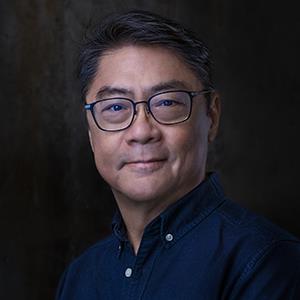
Miguel de Senna Fernandes, Playwright, Director, Music, Lyrics and Music Arrangement
A lawyer and notary by profession, co-founder of Dóci Papiaçám di Macau Drama Group, self-taught in performing arts, and a former actor, Miguel has written and directed nearly all the group’s works during its 30 years of existence. A strong supporter of Patuá as a language unifying the Macanese community, he is a serious researcher of the dialect. In 2001, with the collaboration of Professor Alan Baxter, he published Maquista Chapado, a glossary on the dialect of Macao. Miguel believes that theatre remains the most effective way in spreading and sparking people’s interest in the dialect.
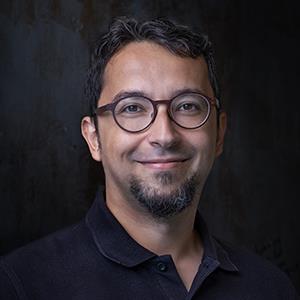
Sérgio Perez, Video Director
Macao-born director and filmmaker, Sérgio graduated from the School of Arts of the Portuguese Catholic University. He now works as a commercial director and screenwriter. His work has been showcased and highlighted in various Portuguese short film festivals and local film festivals. Since 2005, Sérgio has been directing fictional short films for Doci Papiáçam di Macau Drama Group.

Dóci Papiaçám di Macau Drama Group
On 30 October 1993, a group of enthusiasts began a project that was not thought to have continuity. Under the motto “Revival for Survival”, Dóci Papiaçám di Macau Drama Group took its first steps in putting a show on stage. It was sheer courage – no one had any artistic training, but nothing discouraged the spirit and enthusiasm of the group. “Do first, learn later” may have been the first words of order that dictated a 30-year course.
From its very first Patuá performance Olâ Pisidenti (“See the President”), which was staged in a small space at the symbolic Dom Pedro V Theatre in 1993, to this day in the Grand Auditorium of the Macao Cultural Centre, the group has reached an increasingly larger and diversified audience. In the beginning, Patuá plays were designed exclusively for the Macanese and Portuguese communities; nowadays, they are directed to the general public, with Chinese audience and an audience of other nationalities becoming increasingly noticeable. This demonstrates very well the growing interest of Macaísta humour, or Macanese humour, that the group has been providing.
There have been three phases in the group’s journey. The first and most remarkably nostalgic phase was between 1993 and 1999, when plays were performed along the traditional ways of the past, in which the memory of late José “Adé” dos Santos Ferreira was well present.
The second phase began in 2000 until 2005. Though the plays continued along the nostalgic line, the group revolutionised its performances with the introduction of Chinese elements. It was the first time that Cantonese was heard in a Patuá play, as well as the very beginning of the use of surtitles in theatre in Macao.
The third phase began in 2006 until 2015. The full use of multimedia and video productions as a complement to the show has introduced a new image for the group in the art of entertainment. It is also in this phase where thematic changes could be witnessed: plots are based on everyday situations, about daily anxieties. And with this, the group has recovered the typical facet of the Macaísta theatre, that is scorn and social criticism.
And from 2016 onwards, the group reached a new level with the inclusion of musical elements, kicking off a fourth phase. Original music composed especially for the shows completed the traditional Macanese theatre: a satirical comedy with music.
30 years of humour was also a time of great friendship and collective learning. Many people have taken part in the group, some of them are actually pursuing an artistic career.
But above all, it is their contribution to the greater knowledge and interest in the Macaísta culture. Today, when we speak of and study at an academic level, of the Macanese phenomenon and its language, much of it has to do with what Dóci Papiaçám di Macau Drama Group has put on stage. The group is also appointed as the protection unit for the Patuá theatre, which was inscribed on the National List of Representative Elements of Intangible Cultural Heritage of China in 2021.
“Patuá remains the soul of the group, and Macao its raison d’être” continues to be a motto so noble and so true to the group.
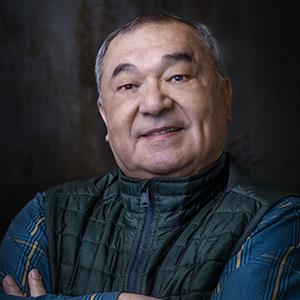
Armando Sales Ritchie, Actor (as Mano)
Born in Macao and emigrated to Brazil in 1972, Armando retired and returned to Macao. He was a founding member of Casa de Macau in São Paulo and has been involved in various social activities, as well as promoting Macanese culture and cuisine. Armando was elected President of Casa de Macau in São Paulo from 2000 to 2002. He is a keen sportsman, with a particular interest in field hockey. He is also one of the founders of the local band The Thunders.
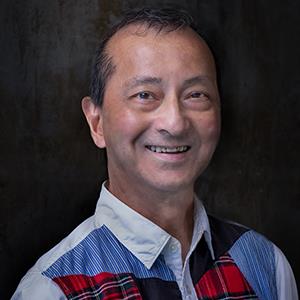
Aleixo Siqueira, Actor (as Aniceto)
Aleixo is a volunteer at the Macau Red Cross. He loves Patuá and has been in the Dóci Papiaçám di Macau Drama Group since 2012, to which he devotes himself enthusiastically. This is his twelfth performance with the group this year.
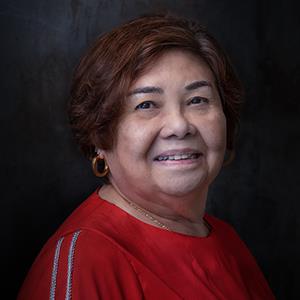
Rita Cabral, Actor (as Verónica)
A retired employee of the Macau Post, Rita is a swimming and gymnastics enthusiast, and also a renowned cook of Macanese food. She has lived with Patuá since childhood and joined Dóci Papiaçám di Macau Drama Group in 2006. She performed in the play Vila Paraíso (“Paradise Village”) in the same year, and has subsequently participated in all the performances of the group.
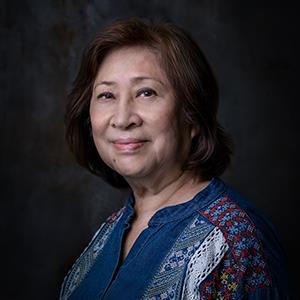
Sónia Palmer, Actor (as Mafalda)
A co-founder of the Dóci Papiaçám di Macau Drama Group, Sónia is crucial to its organisation. Her first acting experience in Patuá was Olá Pisidente (“See the President”) in 1993 and has since then appeared in Doci Papiaçám di Macau’s several other productions. She has participated in the Group’s tours to San Francisco (USA), São Paulo (Brazil), Porto and Lisbon (Portugal), and also in Malacca for the opening of “Macau Gallery”.
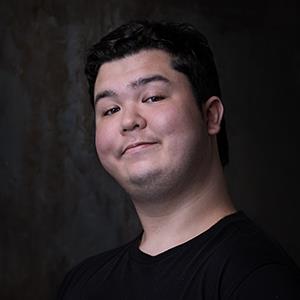
Joel Sousa Nunes, Actor (as Chicho)
Born and raised in Macao, Joel was invited to be the emcee in several school activities and has also participated in theatre performances. Joel has always been interested in theatre and participated in a performance of Dóci Papiaçam di Macau Drama Group for the first time in 2016. Since then, he has further developed his interest in theatre, continuing to train his acting skills and learning Patuá. This will be his third performance as one of the main actors.
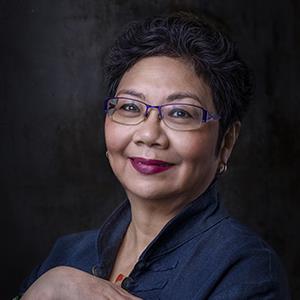
Marina de Senna Fernandes, Actor (as Milú)
Marina is one of the veterans of the Dóci Papiaçám di Macau Drama Group, debuting in Mano Beto Vai Sai Ieong in 1994. Since then, she has participated in almost all the activities of the group, both on stage and behind the scenes. She loves the stage and all the adrenaline, the nervous situations, improvisations, blanks and chills. Since Patuá is an integral part of Macanese culture, she believes that the dissemination of lingu maquista through theatre is one of the best vehicles for its safeguarding, allowing not only sensitising all kinds of people in the community, especially the younger ones, as well as spreading to the general public the interest in the persistence of this singular dialect.
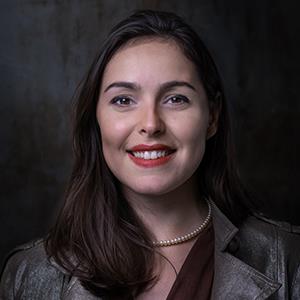
Joana Freitas, Actor (as Frida)
Born in Porto, Portugal, Joana first came to Macao in 2010. A practitioner of Chinese martial arts for more than a decade, Joana attended the Beijing Sport University and finally graduated with a degree in Journalism, and has worked as a journalist and editor. She is also the lead singer of the Macao local band Concrete/Lotus. This is the fourth time she steps on a theatre stage after her performance in the Saving Troubled Daddy, Boss for a Day and Love Cruise.
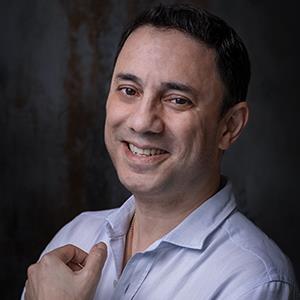
José Basto da Silva, Actor (as Tomás)
Holder of a Bachelor’s degree and a Master’s in Computer Engineering from the University of Coimbra, José is currently the President of the Associação dos Antigos Alunos da Escola Comercial Pedro Nolasco, a member of the Cathedral Choir of the Catholic Diocese of Macau and a volunteer of the Project Management Institute. He has been performing with Dóci Papiaçám since 2013 and believes that it is important to participate in Patuá theatre as there are few Macanese and even fewer Patuá speakers in Macao. He also believes that the work done by Dóci is fundamental to showcase the characteristics of Macao.
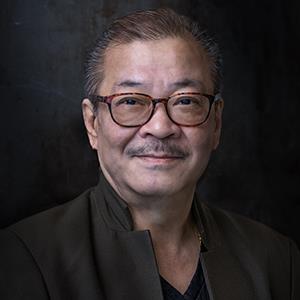
José Carion Júnior, Actor (as Jaquim)
José has been performing with Dóci Papiaçám di Macau Drama Group for many years and he believes that it is a never-ending learning experience. Although each performance takes a long time to rehearse, he is always happy to hear the applause and laughter of the audience.
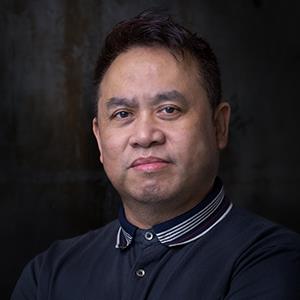
Leon Lou Pui Leong, Actor (as Danny)
Leon has been operating his own media production company for years and was a member of the Hiu Kok Drama Association. He participated mainly in backstage activities, and in recent years comes on scene frequently to perform in government promotional videos, training and educational videos, as well as being a guest host in TDM’s programmes. He first joined Dóci Papiaçám di Macau Drama Group in 2004 when he made a guest appearance, and has participated in the annual Patuá theatre since then.
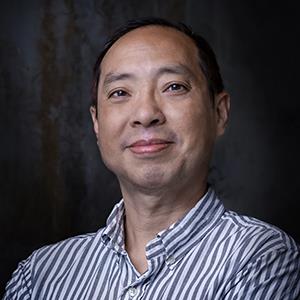
Ray Cheang Sin Hou, Actor (as Wang)
Ray is an experienced theatre actor and is currently a member of the Hiu Kok Drama Association and Macao Culture and Art Association. He has also participated in various Patuá theatre performances. After his last performance with Dóci Papiaçám di Macau in 2018, Ray returns to take part in this year’s production. In recent years, he has also performed in other productions such as Sonho sobre o Pavilhão “Ronglu” and Xiao Tian.
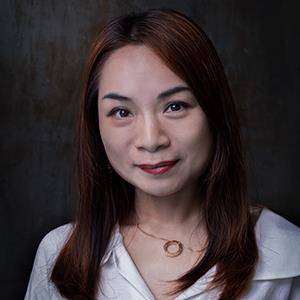
Helena Leong Choi U, Actor (as Angel-Baby)
Helena is a supervisory board member and publicity manager of the Hiu Kok Drama Association. She attended drama and stage make-up training courses at the School of Theatre of Macao Conservatory, and courses for children’s playgroup instructors and social skill trainers. She worked in different organisations such as Macao Conservatory and other arts centres as a drama instructor, physical instructor, director and playwright, photographer and video producer, and project coordinator, among others.
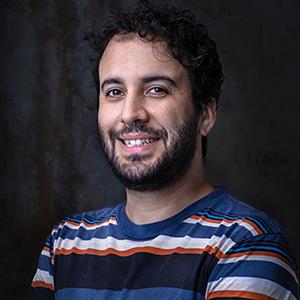
João Picanço, Actor (as Maurício)
João is a journalist, born in Águeda, Portugal. In Portugal, João was a sports journalist. He came to live in Macao six years ago and is now working at TDM. Invited by Miguel Senna Fernandes, João joined the Dóci Papiaçám di Macau Drama Group. Now, that he already understands most of the Patuá language he simply has to learn to speak it and to act.
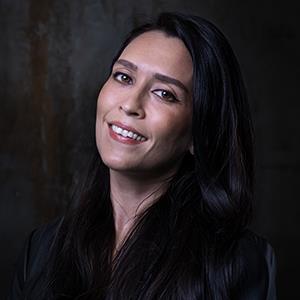
Agurtzane Azpiazu Cordeiro, Actor (as Susana)
Agurtzane participated in a play by Dóci Papiaçám di Macau Drama Group for the first time in 1999 and returned to the stage in 2019, which she was really happy for. She has a close relationship with her maternal grandparents and their brother and sisters, and still remembers listening to Patuá as a language used every day at home.

José Luís Pedruco Achiam, Actor (as Tito)
José Luís returned home to Macao in 2006 after receiving a Bachelor’s degree in Politics and Social Science in Sydney. He has been enthusiastically preserving Patuá and the Macanese culture by participating in Dóci Papiaçam’s stage performances, producing music videos and singing in them. He takes pride in being a Macanese, passionate about his contribution and promotion of Patuá Theatre.